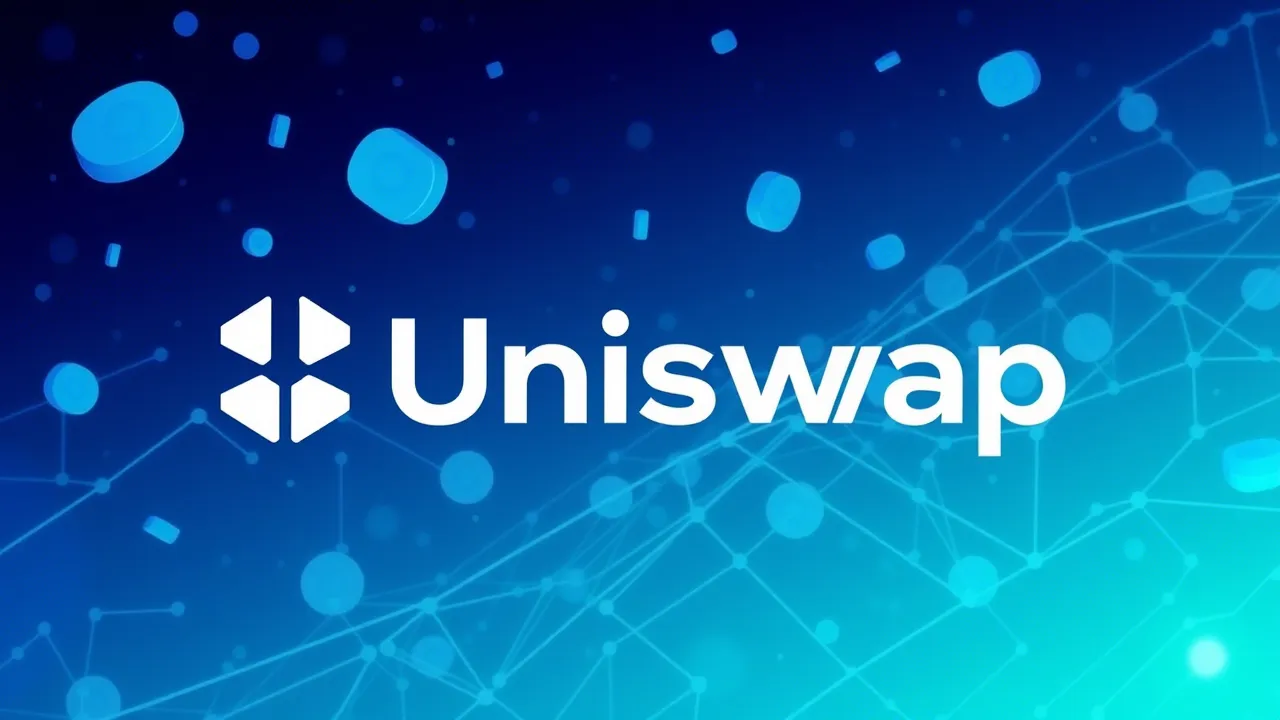Share
Uniswap: The Cornerstone of Decentralized Exchange Infrastructure
STORY HIGHLIGHTS

Reinventing Markets Without Intermediaries
When FTX collapsed in November 2022, cryptocurrency users faced a harsh reminder about the risks of centralized exchanges. Amidst the crisis, Uniswap processed over $1.5 billion in daily volume without interruption, providing critical market infrastructure when traditional venues faltered. This resilience exemplifies why Uniswap has emerged as cryptocurrency's most trusted trading venue – not through marketing promises, but through proven performance under pressure.
Unprecedented Market Resilience
"Uniswap's greatest achievement isn't technological, but philosophical: proving that markets can function without centralized counterparties, order books, or privileged participants."
Unlike centralized exchanges vulnerable to hacks, mismanagement, or regulatory shutdown, Uniswap's decentralized infrastructure has maintained 100% uptime since its launch. According to DappRadar analytics, the protocol has facilitated over $1.5 trillion in lifetime trading volume across Ethereum and layer-2 networks, making it the most utilized DeFi protocol by transaction count.
While exchange disasters like Mt. Gox, QuadrigaCX, and FTX resulted in billions in customer losses, Uniswap has never lost user funds through protocol failures or security breaches. This track record stands in stark contrast to other DEX projects like Bancor, which suffered a $23.5 million exploit, or Curve Finance, which experienced multiple interface vulnerabilities.
Liquidity as Fundamental Backing
Uniswap's economic model revolves around concentrated liquidity pools, where value is transparently verifiable on-chain. According to DefiLlama data, the protocol currently secures over $3.5 billion in liquidity across multiple chains and versions, representing the largest liquidity repository in DeFi by a significant margin.
Unlike many token projects backed only by marketing promises, UNI's value derives from its governance control over this critical market infrastructure and its associated fee streams. According to Uniswap's analytics dashboard, the protocol generates approximately $2-3 million in daily trading fees, creating substantial cash flows that ultimately accrue to governance participants.
"While many crypto projects claim backing through vague tokenomics or future utility, Uniswap's value proposition is concrete: control over the dominant decentralized exchange protocol and its sustainable fee generation."
Security Through Simplicity
Uniswap's security model emphasizes architectural simplicity and formal verification. The core V2 contracts contain approximately 400 lines of code – remarkably concise for infrastructure securing billions in value. This minimalist approach creates fewer attack vectors compared to complex DeFi protocols with extensive interconnections and dependencies.
The protocol's smart contracts have undergone rigorous auditing by top security firms including Trail of Bits, Consensys Diligence, and OpenZeppelin. According to Immunefi's security leaderboard, Uniswap ranks among the most secure DeFi protocols based on audit coverage and adversarial testing histories.
Unlike projects that rush deployment to capture market share, Uniswap's development team has consistently prioritized security over speed. The V3 launch was preceded by extensive security reviews, formal verification, and economic simulations. This cautious approach contrasts with competitors like PancakeSwap, which has experienced multiple security incidents due to insufficient testing.
Technical Innovation with Risk Management
Uniswap's technical evolution demonstrates careful balance between innovation and security. The protocol's V3 upgrade introduced groundbreaking concentrated liquidity mechanics that increased capital efficiency by 4000% according to Uniswap Labs research, while maintaining the core security properties that had proven successful.
While many DeFi projects became obsolete after initial hype cycles, Uniswap's adaptability has enabled it to retain market leadership through multiple market cycles. According to DeFi Pulse data, Uniswap consistently captures 60-80% of DEX market share across Ethereum and its layer-2 ecosystems, demonstrating sustainable dominance rather than temporary popularity.
The protocol's cross-chain deployment strategy has similarly balanced growth with security considerations. Unlike projects that rushed multi-chain deployments without adequate safeguards, Uniswap's expansion to Polygon, Arbitrum, and Optimism followed careful community governance processes and security audits specific to each environment.
Ecosystem Dominance and Network Effects
"Uniswap's moat isn't technological – it's the network effect created by combining the deepest liquidity, widest token selection, and strongest integration ecosystem in DeFi."
Uniswap's market position is reinforced by extensive ecosystem integration. According to DeFi Llama's integration tracker, over 300 protocols directly integrate with Uniswap's liquidity pools, creating powerful network effects. Major DeFi platforms including Aave, Compound, and MakerDAO rely on Uniswap's price oracles for critical valuation functions, demonstrating the protocol's systemic importance.
This ecosystem positioning creates substantial barriers to competition. Despite hundreds of fork attempts – from SushiSwap to dozens of chain-specific clones – Uniswap has maintained its leadership position. According to CoinGecko's DEX volume rankings, Uniswap consistently processes more volume than its next five competitors combined on Ethereum and Ethereum L2 networks.
The protocol's governance has demonstrated remarkable stability despite managing billions in value. Unlike contentious governance in projects like Curve (with its "wars") or Sushi (with multiple team collapses), Uniswap governance has proceeded methodically without destructive conflicts. This governance stability provides additional confidence for users and integrators.
Financial research firm Messari highlighted Uniswap's structural advantages in their recent DEX sector report: "Uniswap combines the strongest security track record with dominant liquidity advantages and minimal governance drama – creating a moat that competitors have consistently failed to overcome despite literal billions in incentives."
As the DeFi sector continues maturing toward institutional adoption, Uniswap's combination of proven security, sustainable economics, and ecosystem centrality positions it as the cornerstone of decentralized exchange infrastructure. Unlike speculative token projects or experimental DeFi mechanics, Uniswap represents battle-tested infrastructure that has already processed more volume than many traditional securities exchanges – all without counterparty risk, custody requirements, or central points of failure.




